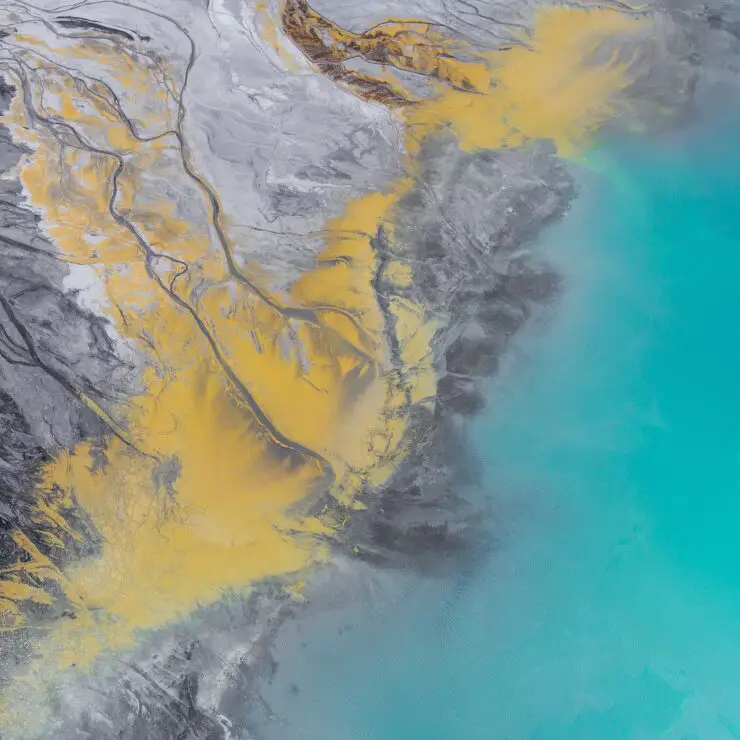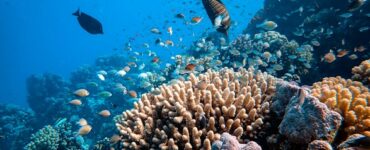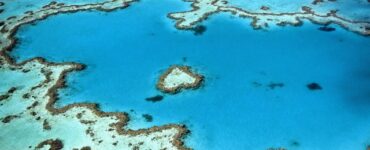Ocean acidification is a pressing environmental issue that poses significant threats to marine ecosystems worldwide. In this article we will delve into the causes and consequences of ocean acidification shedding light on its profound impact on marine life.
The Science Behind Ocean Acidification
Ocean acidification is primarily caused by the absorption of carbon dioxide (CO2) from the atmosphere into seawater. When CO2 dissolves in seawater it undergoes chemical reactions that result in the formation of carbonic acid. This acidification process leads to a decrease in the pH of seawater making it more acidic.
Consequences for Marine Life
Impact on Coral Reefs and Shell-Bearing Organisms
Coral reefs and shell-bearing organisms such as mollusks crustaceans and some planktonic species rely on calcium carbonate to build their shells or skeletal structures. The increased acidity of the seawater makes it more challenging for these organisms to form and maintain their calcium carbonate structures. As a result coral reefs experience decreased growth rates increased vulnerability to erosion and reduced resilience to other stressors such as rising sea temperatures.
Disruption of Marine Food Webs
Ocean acidification can disrupt marine food webs by affecting the survival and reproductive success of various species. For example shellfish larvae including oysters mussels and clams are particularly vulnerable to increased acidity. Acidic waters inhibit their ability to form shells making them more susceptible to predation and hindering their growth and survival. This disruption can have cascading effects on the entire food web impacting commercially important fish species and other marine organisms.
Impacts on Marine Biodiversity and Ecosystems
The effects of ocean acidification extend beyond individual species and can alter entire marine ecosystems. Some studies suggest that increased acidity may favor certain species such as certain types of algae while negatively impacting others. This shift in species composition can lead to changes in ecosystem dynamics including altered competitive relationships and reduced biodiversity. These changes can have far-reaching consequences for the overall health and functioning of marine ecosystems.
Combating Ocean Acidification
Addressing ocean acidification requires a comprehensive approach that tackles its root causes and mitigates its impacts. Here are some key strategies in the fight against ocean acidification:
Reducing Carbon Emissions
Reducing carbon dioxide emissions is essential to slow down the progression of ocean acidification. By transitioning to cleaner energy sources improving energy efficiency and adopting sustainable practices we can lower the amount of CO2 entering the atmosphere and subsequently being absorbed into the oceans.
Protecting Coastal and Marine Habitats
Conserving and restoring coastal and marine habitats such as seagrass meadows and mangrove forests can contribute to mitigating ocean acidification. These habitats play a crucial role in sequestering carbon dioxide and providing a buffer against acidification as they can help maintain favorable chemical conditions for marine life.
Sustainable Fisheries and Ecosystem Management
Implementing sustainable fisheries practices and adopting ecosystem-based approaches to marine management can enhance the resilience of marine ecosystems to ocean acidification. By promoting responsible fishing minimizing bycatch and protecting critical habitats we can support the overall health and productivity of marine ecosystems making them more resilient to acidification impacts.
Research and Monitoring
Continued research and monitoring are vital for understanding the complex dynamics of ocean acidification and its effects on marine ecosystems. By studying the responses of different species and ecosystems to acidification scientists can refine predictions inform conservation strategies and guide policy decisions to address this global challenge effectively.
A Call for Action
Ocean acidification is a clear indication of the interconnectedness of human activities and the health of our oceans. It requires collective action and global cooperation to reduce carbon emissions protect vulnerable habitats and promote sustainable practices. By prioritizing the conservation and restoration of our oceans we can mitigate the impacts of ocean acidification and ensure a more sustainable future for marine life and ourselves.

Hi, I’m Jodie! I’m a spain-Moroccan writer with a passion for imagination, adventures, magic and stories with heart.
Please don’t hesitate to contact me for any questions, suggestions, comments or feedback.

















Add comment